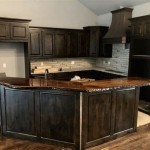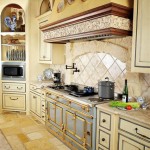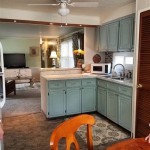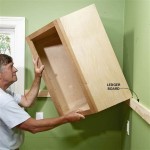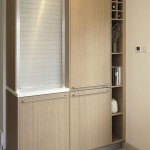Essential Aspects of LED Strip Lights for Under Kitchen Cabinets
LED strip lights are an increasingly popular choice for under-cabinet lighting in kitchens due to their energy efficiency, versatility, and ease of installation. However, before investing in LED strip lights, it is crucial to consider several key aspects to ensure they meet your specific needs and expectations.
1. Brightness and Color Temperature
The brightness and color temperature of your LED strip lights will significantly impact the overall look and functionality of your kitchen. Measure the length of the area under your cabinets and determine the total lumen output required to achieve the desired brightness. Most LED strip lights are available in color temperatures ranging from warm white (2700K-3000K) to natural white (4000K-4500K) to cool white (5000K-6500K). Choose the color temperature that complements your kitchen's color scheme and lighting ambiance.
2. Power Consumption and Energy Efficiency
LED strip lights consume significantly less energy compared to traditional fluorescent or incandescent lighting. Look for LED strips with a high CRI (Color Rendering Index) of 90+ to ensure accurate color reproduction. The power consumption is measured in watts per meter, so consider the length of the strip you need and calculate the total wattage accordingly.
3. Installation and Mounting Options
LED strip lights are typically self-adhesive and can be easily installed under cabinets without the need for complex tools or wiring. Some strips come with double-sided tape, while others may require clips or mounting brackets. Choose a mounting option that provides secure installation and allows for easy removal if necessary.
4. Dimmability and Controllability
Dimmable LED strip lights allow you to adjust the brightness to create different lighting scenarios. Look for LED strips compatible with dimmers, either traditional or wireless, to ensure smooth and convenient dimming control. Some LED strips also feature color-changing capabilities, adding versatility to your under-cabinet lighting.
5. Durability and Lifespan
The lifespan of LED strip lights is typically measured in hours, and high-quality strips can last for over 50,000 hours. Consider the durability and environmental conditions your LED strips will be exposed to, such as heat, moisture, and cleaning solutions. Choose strips with proper IP ratings for your specific application.
6. Safety and Certification
Electrical safety is paramount. Ensure the LED strip lights you choose are certified by reputable organizations like UL or ETL, indicating they meet safety standards. Avoid purchasing low-quality or non-certified strips to prevent potential electrical hazards.
7. Aesthetics and Design
The appearance of your LED strip lights can complement your kitchen's style. Choose strips with a color and design that match your existing décor or add a contrasting touch. Some strips may be ultra-thin or have diffused covers to create a more subtle lighting effect.
In conclusion, carefully considering these essential aspects will help you choose the optimal LED strip lights for your under-cabinet lighting needs. By selecting the right brightness, color temperature, power consumption, installation method, dimming options, durability, safety certification, and aesthetics, you can transform your kitchen into a well-lit and inviting space.

How To Choose And Install Led Strip Lights For Kitchen Cabinets

Strip Lighting Vs Puck Which Is Better For Undercabinet

The Ultimate Guide To Choosing Best Led Strip Lights For Your Home Simple Lighting Blog

Choosing Under Cabinet Lighting For The Kitchen Abby Organizes

How To Choose And Install Led Strip Lights For Kitchen Cabinets

Led Strip Vs Under Cabinet Lights Downlights Direct Lighting Advice News

How To Choose And Install Led Strip Lights For Kitchen Cabinets

Led Strip Lights Overview Astrum Lighting And Design
Under Cabinet Lighting

Kitchen Cabinet Lighting Using Warm White Led Strip Lights
Related Posts




